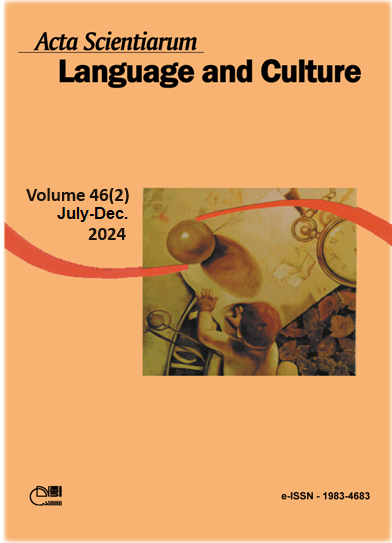The sociopolitical poetry of Gil Vicente and Patativa do Assaré
Abstract
The purpose of this article is to present a reading of the poetry of Patativa do Assaré and Gil Vicente, starting from a study of the sociopolitical character, based on the work of Antonio Candido, entitled Literatura e sociedade. Both poets are from different times and places, and they observed and experienced dramatic realities that impelled them to expose, in the form of poems or theatrical text, their deepest impressions and feelings, always using poetry. They were spokespersons for the people with whom they lived: one, in the punished backlands of northeastern Brazil; another, in the Portuguese court of the 16th century. Both present a poetics marked by antagonistic axes, with an emphasis on looking at the human being. Candido, in turn, seeks to focus his studies on various levels of the intersection between literature and society, showing, on one hand, the social aspects of literary texts and, on the other, the occurrence of these aspects in the works studied. Based on this premise, an analysis of some texts by the cearense and the portuguese is proposed, emphasizing the character of militancy, in their respective writings, against systems of oppression and silencing or exposing the ills of the society where they lived, constituting the emergence of dissonant voices. The present analysis is based on bibliographical research, in addition to theoretical references on sociopolitical issues, as well as material that composes the historical context.
Downloads
References
Referências
Assaré, P. (2002). Cante lá que eu canto cá: filosofia de um trovador nordestino. Rio de Janeiro, RJ: Editora Vozes.
Assaré, P. (2005). Ispinho e Fulô. São Paulo, SP: Hedra, 2005.
Assaré, P. (2006). Melhores poemas: Patativa do Assaré (Seleção de Cláudio Portella). São Paulo, AP: Global.
Candido, A. (2004). O direito à literatura. In A. Candido, Vários escritos. Rio de Janeiro, RJ: Ouro sobre azul.
Candido, A. (2006). Literatura e Sociedade. São Paulo, SP: Publifolha.
Carvalho, G. (2002a). Patativa poeta pássaro do Assaré. Fortaleza, CE: Omni,.
Carvalho, G. (2002b). Patativa do Assaré: Pássaro liberto. Fortaleza, CE: Museu do Ceará; Secretaria da Cultura e Desporto do Ceará,.
Saraiva, A. J., & Lopes, Ó. (1995). História da literatura portuguesa. Porto, PT: Porto Editora.
Vicente, G. (2017a). Farsa de Inês Pereira. Belém, PA: Universidade da Amazônia. Recuperado de http://www.dominiopublico.gov.br/download/texto/bv000111.pdf
Vicente, G. (2017b). Auto da barca do inferno. Belém, PA: Universidade da Amazônia. Recuperado de http://www.dominiopublico.gov.br/download/texto/ua00111a.pdf
DECLARATION OF ORIGINALITY AND COPYRIGHTS
I Declare that current article is original and has not been submitted for publication, in part or in whole, to any other national or international journal.
The copyrights belong exclusively to the authors. Published content is licensed under Creative Commons Attribution 4.0 (CC BY 4.0) guidelines, which allows sharing (copy and distribution of the material in any medium or format) and adaptation (remix, transform, and build upon the material) for any purpose, even commercially, under the terms of attribution.
Read this link for further information on how to use CC BY 4.0 properly.




















6.png)









